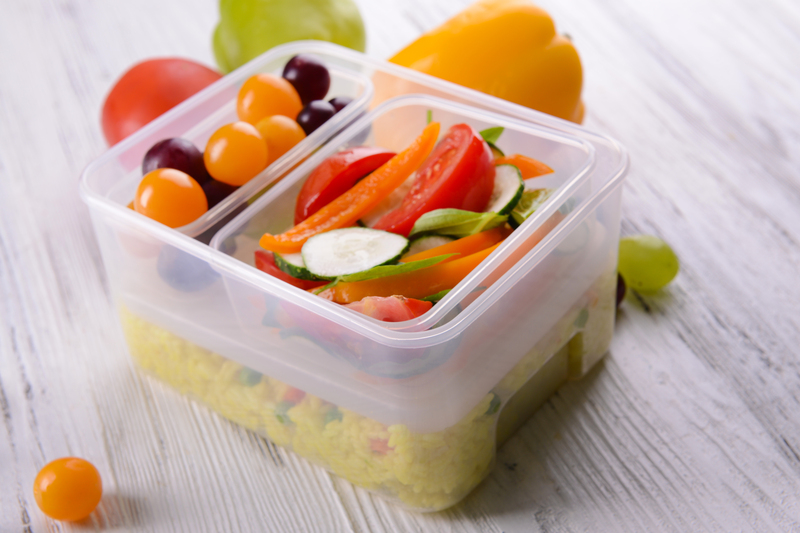Introduction to Eco-Friendly Alternatives for Reducing Plastic Use
Plastic pollution is one of the most pressing environmental challenges of our time. Every year, millions of tons of single-use plastics end up in our oceans, landfills, and even our food chain. As the harmful impact on wildlife, ecosystems, and human health becomes increasingly apparent, many individuals, organizations, and governments are seeking eco-friendly alternatives to reduce plastic consumption. This comprehensive article explores effective solutions, the benefits of eco-friendly options, and practical steps you can take to be part of a global movement toward a cleaner, greener planet.

Why Is Reducing Plastic Use Essential?
- Environmental impact: Plastics are not biodegradable; they persist in the environment for centuries, contributing to land, ocean, and air pollution.
- Threat to wildlife: Marine animals and birds often mistake plastic debris for food, leading to injury and death.
- Human health risks: Microplastics have been discovered in water supplies and even in human blood, raising concerns about potential health hazards.
- Depletion of resources: The production of plastics relies on fossil fuels, which exacerbates climate change and depletes non-renewable resources.
Understanding the Scope of the Plastic Problem
Globally, more than 300 million tons of plastic are produced every year, and half of that is for single-use purposes. From plastic bottles and bags to food packaging and straws, our reliance on plastic is unsustainable. Therefore, embracing eco-friendly alternatives to plastics is essential for future generations.
Main Categories of Eco-Friendly Alternatives to Plastic
There are several innovative and effective categories of plastic-free alternatives available today. The following sections highlight the most practical and sustainable options.
1. Reusable and Sustainable Storage Solutions
- Glass Containers: Replacing plastic storage containers with glass is an easy first step. Glass is durable, non-toxic, and fully recyclable.
- Stainless Steel: Steel lunchboxes, bottles, and food storage options are gaining popularity thanks to their longevity and ability to keep contents fresh.
- Silicone Food Bags: High-quality, reusable silicone bags are flexible, washable, and ideal for food storage, significantly reducing the need for single-use plastic bags.
- Fabric Wraps: Beeswax or vegan wax food wraps made from cotton and plant-based waxes are ideal for wrapping bread, fruits, and snacks. They are reusable and compostable.
2. Alternatives to Plastic Packaging
- Paper and Cardboard: Products made from recycled paper and cardboard can replace plastic in packaging, shopping bags, and shipping materials.
- Cornstarch and Plant-Based Bioplastics: Some manufacturers now use bioplastics derived from cornstarch, cassava, or sugarcane, which are compostable under industrial conditions.
- Mushroom Packaging: An innovative material grown from mycelium, mushroom packaging is fully biodegradable and can replace foam and other plastics in cushioning products during shipping.
- Palm Leaves and Areca: Certain eco-friendly dinnerware is made from naturally fallen palm leaves or areca, which decompose safely after use.
3. Zero-Waste Personal Care Products
- Bar Soaps and Solid Shampoos: By choosing solid versions of soap, shampoo, and conditioner, you eliminate the need for plastic bottles entirely.
- Bamboo Toothbrushes: Swap plastic brushes for bamboo, a fast-growing, renewable resource that biodegrades after use.
- Eco-Friendly Razors: Stainless steel safety razors last for years and significantly reduce waste compared to disposable plastic versions.
- Bulk Refill Stations: Many zero-waste stores offer personal care items, cleaning supplies, and pantry staples in bulk, allowing you to refill your own containers.
4. Alternatives to Single-Use Plastics in Daily Life
- Cloth Shopping Bags: Reusable fabric bags made from organic cotton, jute, or hemp are sturdy and washable alternatives to plastic bags.
- Stainless Steel or Glass Straws: Reusable straws keep millions of plastic straws out of oceans annually.
- Compostable Cutlery and Plates: Utensils made from bamboo, birch, or cornstarch can replace disposable plastic cutlery at events and picnics.
- Water Bottles: Investing in a high-quality stainless steel or glass water bottle reduces single-use plastics and keeps your drinks fresh.
The Advantages of Switching to Plastic-Free Alternatives
Making the transition to eco-friendly alternatives for reducing plastic use brings numerous benefits to individuals and society at large:
- Healthier Living: Many plastic alternatives are non-toxic and free from chemicals like BPA, often found in regular plastics.
- Reduced Environmental Footprint: Using biodegradable and compostable materials helps reduce landfill waste and pollution, protecting wildlife and marine ecosystems.
- Economic Opportunities: As demand grows for sustainable products, new markets and jobs are being created in the green sector.
- Promoting Responsibility: Choosing reusable, sustainable products encourages a culture of environmental stewardship and conscious consumption.
How to Get Started: Practical Steps for Individuals
Transitioning to eco-conscious alternatives to plastic doesn't have to be overwhelming. Here are actionable steps anyone can take today:
- Start small: Pick one area of your life, such as grocery shopping or personal care, and swap out plastic items for sustainable counterparts.
- Plan ahead: Carry reusable bags, straws, and cutlery when you leave the house.
- Shop at zero-waste stores: These stores encourage you to bring your own containers and buy in bulk, eliminating excess packaging.
- Educate others: Spread awareness about the importance of reducing plastic use and the benefits of eco-friendly alternatives.
Tips for a Plastic-Free Kitchen
- Switch to glass or stainless steel containers for food storage.
- Use beeswax wraps instead of plastic wrap for keeping food fresh.
- Buy fresh produce at farmers markets to avoid plastic packaging.
- Purchase bulk dry goods with your own containers rather than prepackaged products.
- Compost food scraps instead of using plastic trash bags.
Plastic-Free Shopping Habits
- Choose products with minimal or plastic-free packaging.
- Shop at local stores that support sustainability and reduce reliance on major chains with excessive plastic packaging.
- Prefer refills and concentrates for household products.
- Say no to plastic bags at checkout--always have a reusable tote handy.
Innovation and Government Initiatives
Across the globe, innovative startups and government bodies are encouraging eco-friendly alternatives to reduce plastic use. Examples include:
- Plastic bag bans: Many cities and countries have introduced bans or levies on single-use bags, encouraging the adoption of reusable options.
- Compostable packaging requirements: Some areas now mandate the use of compostable packaging in certain industries.
- Incentives for businesses: Grants, subsidies, or recognition are offered to companies that invest in sustainable package designs and plastic alternatives.
- Research and Development: Universities and innovators are creating new biodegradable materials, such as seaweed-based films and edible packaging.
Success Stories from Around the World
Several countries are leading the way in reducing plastic use:
- Sweden: Innovative recycling programs and deposit return systems have dramatically increased plastic bottle recycling rates.
- India: Several states have implemented comprehensive bans on single-use plastics, stimulating a surge in the use of alternatives like cloth bags and compostable dishware.
- Australia: The "War on Waste" campaign has helped raise awareness and encourage citizens to adopt reusable coffee cups and shopping bags.
Challenges to Reducing Plastic Use
While the movement toward eco-friendly plastic alternatives is gaining momentum, there are challenges to consider:
- Cost barrier: Plastic alternatives can sometimes be more expensive initially, though costs often reduce as adoption increases.
- Convenience: Plastics are popular because of their practicality, light weight, and low cost, making immediate large-scale shifts logistically difficult for some areas.
- Recycling limitations: Not all bioplastics are compatible with current recycling systems. Education and investment in composting infrastructure are essential.
- Consumer Awareness: Many people are still unaware of the harm caused by plastics or the existence of eco-conscious alternatives.
The Future of Eco-Friendly Alternatives to Plastic
The future is bright for plastic-free living. As passion and innovation grow, more sustainable materials and scalable solutions will become accessible, affordable, and mainstream. The shift toward a circular economy--where waste is minimized and materials are continually reused and recycled--relies on our collective effort to reduce plastic use and embrace environmentally-responsible alternatives.
Promising Materials on the Horizon
- Algae-based bioplastics: Made using renewable algae, these materials are quickly biodegradable and suitable for various packaging applications.
- Seaweed packaging: Seaweed extracts are used to create edible packaging for dry foods and snacks, reducing both plastic waste and demand for non-renewable resources.
- Recycled materials: Many companies are closing the loop by using recycled paper, glass, and metals in new products and packaging.

Conclusion: Join the Movement for a Plastic-Free World
Transitioning to eco-friendly alternatives for reducing plastic use is not just a personal choice--it is a necessary step for protecting our environment, our health, and our future. Whether you're committing to using reusable bags, supporting plastic-free brands, or advocating for local policy changes, every action contributes to the solution.
Start today, inspire others, and help pave the way for a sustainable, plastic-free tomorrow!
Frequently Asked Questions: Eco-Friendly Alternatives for Reducing Plastic Use
-
What are the easiest plastic items to replace with eco-friendly alternatives?
Start with plastic bags, water bottles, straws, and food containers. These have readily available reusable or compostable counterparts. -
Are plant-based plastics always a better alternative?
While bioplastics offer advantages, not all are home-compostable. Research each product and dispose of it as recommended. -
How can I influence my community to reduce plastic use?
Organize educational workshops, coordinate cleanups, advocate for policy changes, and support local businesses offering sustainable products. -
Where can I buy eco-friendly products?
Check out zero-waste stores, online eco-shops, farmers markets, and select supermarkets offering plastic-free packaging.
Remember, every small change is a step closer to a cleaner, healthier planet. Find your favorite eco-friendly alternatives to plastic, share them widely, and help build a future free from the burden of plastic pollution.